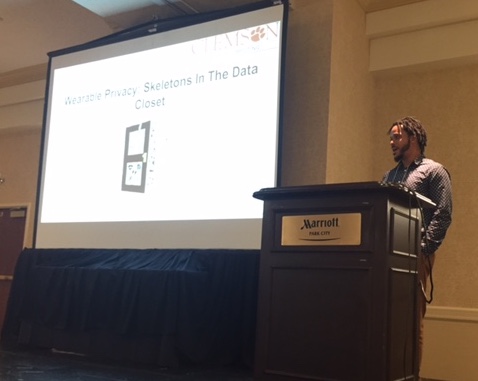Amulet was mentioned in a recent podcast featuring Professor Kelly Caine, of Clemson University.
Tag Archives: privacy
Wearable Privacy: Skeletons in the Data Closet
Equipped with sensors that are capable of collecting physiological and environmental data continuously, wearable technologies have the potential to become a valuable component of personalized healthcare and health management. However, in addition to the potential benefits of wearable devices, the widespread and continuous use of wearables also poses many privacy challenges. In some instances, users may not be aware of the risks associated with wearable devices, while in other cases, users may be aware of the privacy-related risks, but may be unable to negotiate complicated privacy settings to meet their needs and preferences. This lack of awareness could have an adverse impact on users in the future, even becoming a “skeleton in the closet.” In this work, we conducted 32 semi-structured interviews to understand how users perceive privacy in wearable computing. Results suggest that user concerns toward wearable privacy have different levels of variety ranging from no concern to highly concerned. In addition, while user concerns and benefits are similar among participants in our study, these variablesshould be investigated more extensively for the development of privacy enhanced wearable technologies.
- Byron Lowens, Vivian G. Motti, and Kelly E. Caine. Wearable Privacy: Skeletons in the Data Closet. Proceedings of IEEE International Conference on Healthcare Informatics (ICHI). Park City, UT, 2017, pp. 295-304. DOI: 10.1109/ICHI.2017.29

Byron presenting his paper, “Wearable Privacy: Skeletons in the Data Closet” at ICHI 2017
